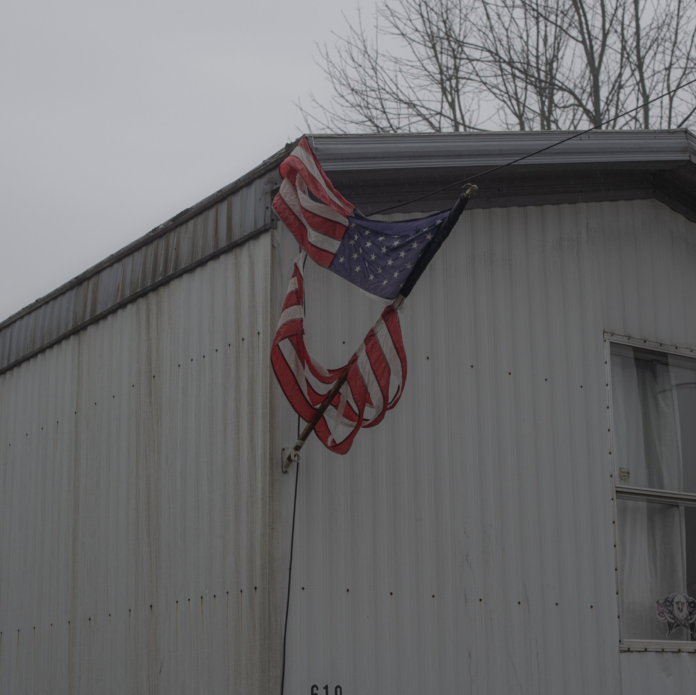“Little Cities” by Rich-Joseph Facun
“Vance’s career has been built on a phony image of him as a product of and de facto spokesperson for poor, rural Appalachians, despite the fact that he was raised in a middle-class family in Middletown, Ohio – a city of about 50,000 people situated between Cincinnati and Dayton. His book Hillbilly Elegy has been touted as a handbook for understanding Appalachia, but I challenge rural Americans to see if they recognize themselves in its pages. Vance depicts rural communities using derisive stereotypes that lack any understanding of the impact of generational poverty—nor does he understand the challenges of living in areas devoid of good jobs, strong public schools, reliable transportation systems or affordable healthcare.
Vance has built his political brand by scolding and shaming poor and working-class families for the problems they face. He blames joblessness, and the issues that arise from it, on the workers themselves, labeling them as “lazy,” instead of blaming the manufacturers and businesses who have pulled out of the area or overlooked rural communities from the beginning.
As a senator, Vance has continued his subservience to the billionaire class by voting against working people 100% of the time, as tallied by the AFL-CIO. Vance also has close ties to the Heritage Foundation and Project 2025—he even wrote a glowing forward to an upcoming book by Kevin Roberts, the Heritage Foundation’s president who helped organize Project 2025. By slashing funding and staff for education, healthcare and other critical government services, Project 2025 would have devastating impacts on small towns and their residents. This extreme agenda runs counter to the rural notion of helping out our neighbors — regardless of what they look like or who they are.
Where I’m from, we mind our own business and we trust others to mind theirs, especially on personal issues, like what our family looks like and how or when we want to grow our family. But J.D. Vance doesn’t understand this. He thinks that “small towns” equals “small-minded.” That’s why he’s willing to invite the government into our bedrooms and doctor appointments to impose his religious ideology on everyone.
Donald Trump might think that rural voters in the 2024 election, Appalachian voters or Midwestern voters, will look at J.D. Vance and see ourselves. We don’t. We see the mine owner who poisons the air and water; we see the factory owner who leaves town to make a higher profit overseas; we see the Big Ag executives who make it near impossible for family farms to thrive—and we see the empty suit politicians who sell us out to please their billionaire donors.”
I was pleasantly surprised by the remarkable amount of nuance in this piece of writing. There’s a variety of political issues either explicitly mentioned or implied, my favorite line being, “that’s why he’s willing to invite the government into our bedrooms and doctor appointments to impose his religious ideology” (Cropper 2024). It’s a sentence that can be overlooked as touting traditionally conservative small-government sentiment. I think by mentioning ‘doctor appointments’ in combination with ‘bedrooms’, Cropper is not only referring to the overturning of Roe v. Wade, but also acknowledging the numerous court cases that Roe v. Wade set precedent for, and as a result, could potentially be at risk. Additionally, ‘doctor appointments’ could be a nod to reproductive services as well as gender-affirming care.
It’s touched on briefly at the end of the article, but it’s important to note that rural Ohioans witness firsthand the effects of corporations taking advantage of natural resources. They bear the financial burden, the social stigmas, the environmental devastation, and health risks corporations leave in their wake. Despite what conservative generalizations may lead people to believe, rural Ohians do care about environmentalism, but through a lens many of us haven’t engaged with if we don’t come from that background. Understanding how to enable visitors in state parks to partake in sustainability initiatives means understanding the ways in which local residents want to care for their environment on their terms.
Cropper, M. (2024, August 5). As a Rural Ohioan, I See J.D. Vance for Who He Is. Barn Raiser. https://barnraisingmedia.com/rural-ohio-teachers-j-d-vance-project-2025/
Facun, R.-J. (2023). “Little Cities” [Photography]. https://facun.com/little-cities-ongoing




